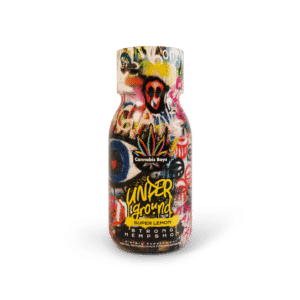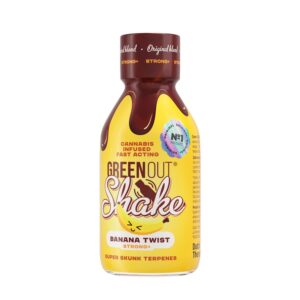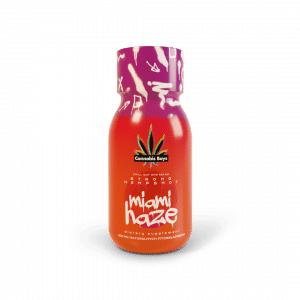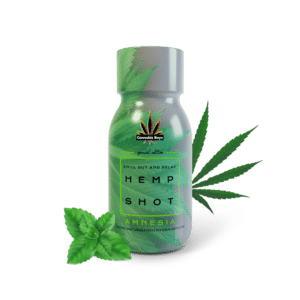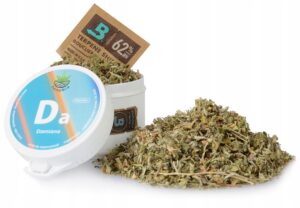Did you know that popular herbs like St. John's wort, garlic and licorice, while natural, can become a source of serious health problems when you combine them improperly?
In an era of growing popularity of phytotherapy, many people turn to herbs as an adjunct to drug treatment, unaware of the risk of interactions. These interactions can weaken the effects of drugs, exacerbate their side effects or cause new, unexpected symptoms.
You will learn how to use natural remedies safely, avoiding mistakes that can endanger your health. Keywords such as "what herbs can't be combined," "herb-drug interactions" or "inadvisable combinations of herbs" will help you find this information.
Why Are Herbal Interactions So Important? Introduction to Phytotherapy Hazards
Interactions of herbs with drugs and between herbs themselves are complex phenomena, where the active substances of plants affect the metabolism, absorption or action of other compounds. According to data from the National Center for Complementary and Integrative Health (NCCIH), as many as 20-30% of patients using prescription drugs are taking herbal supplements at the same time, significantly increasing the risk of adverse effects.
For example, herbs can induce or inhibit liver enzymes like cytochrome P450, which alters the concentration of drugs in the blood. Similarly, combining herbs with similar properties can lead to cumulative effects, such as excessive blood pressure lowering or electrolyte disturbances. These interactions are not uncommon - studies show they can cause anything from mild symptoms like fatigue to serious complications like bleeding or heart arrhythmias.
Understanding which herbs not to combine is crucial, especially for the elderly, chronically ill or pregnant women. This guide is based on reliable sources, such as PubMed and NCCIH, emphasizing the need to consult a doctor before starting любой herbal treatment to avoid pitfalls that can harm instead of help.
What Herbs Cannot Be Combined With Each Other? Examples of Inadvisable Combinations Between Herbs
Combining herbs seems safe because they come from nature, but some combinations can lead to dangerous interactions, such as excessive stress on the liver, hormonal or electrolyte disturbances.
One classic example of an inadvisable combination is licorice (Glycyrrhiza glabra) with laxative herbs such as senescence (Cassia senna) or radish (Rheum palmatum).
Licorice contains glycyrrhizin, which retains sodium and potassium, while laxative herbs cause them to be lost through diarrhea, which can cause hypokalemia - a potassium deficiency manifested by muscle cramps, fatigue or heart rhythm disturbances. Studies indicate that chronic use of such blends increases the risk of pseudohyperaldosteronism, a condition that mimics excess aldosterone hormone.
Another example is the combination of passionflower (Passiflora incarnata) and kava (Piper methysticum) - both have sedative effects, and their synergy can exacerbate sedation, leading to excessive sleepiness, concentration problems or even an increase in sleep time by more than 90% in animal model studies.
Another inadvisable combination is guarana (Paullinia cupana) with ephedra (Ephedra sinica), where caffeine from guarana and ephedra from ephedra have an additive stimulant effect, increasing the risk of tachycardia, hypertension or even heart attack, as in reported cases of rhabdomyolysis (muscle breakdown).
Herbs with estrogenic effects, such as hops (Humulus lupulus) with kudzu (Pueraria montana), can accumulate hormonal effects, which is risky for people with hormonal disorders, potentially exacerbating symptoms like breast pain or irregular periods. Another example is black pepper (Piper nigrum) with turmeric (Curcuma longa) - although piperine increases the bioavailability of curcumin by up to 20 times, in excess it can lead to excessive accumulation of the substance, causing stomach problems or interactions with other herbs.
To avoid these mistakes, limit mixtures to 2-3 herbs with complementary actions and always check the composition by consulting a phytotherapist.
Interactions of Herbs with Drugs: Mechanisms and Specific Examples
Herb-drug interactions are one of the most critical aspects of modern medicine, where herbs can alter the pharmacokinetics of drugs by affecting enzymes like CYP3A4 or P-glycoprotein.
- St. John's wort (Hypericum perforatum) is a classic example - it induces CYP3A4, weakening the effects of contraceptives, immunosuppressants like cyclosporine or antidepressants, which can lead to unwanted pregnancy, transplant rejection or recurrence of depression.
- Garlic (Allium sativum) thins the blood, exacerbating the effects of warfarin or aspirin, increasing the risk of bleeding, as in cases reported in the study.
- Asian ginseng (Panax ginseng) can lower glucose levels, threatening hypoglycemia with diabetes medications like metformin, or induce mania with antidepressants.
- Ginkgo biloba potentiates anticoagulants, increasing the risk of hemorrhagic strokes, and interacts with epilepsy drugs.
- Green tea in high doses reduces the effectiveness of nadolol (a beta-blocker) or atorvastatin (a statin), potentially worsening blood pressure or cholesterol control.
- Laxative herbs like aloe vera and senescence reduce the absorption of antibiotics or digoxin, weakening their effect and risking arrhythmias.
- Licorice with diuretics can increase blood pressure through hypokalemia. These examples underscore that herbs are not neutral - always check the leaflets and consult your pharmacist to avoid toxicity or ineffective therapy.
How to Avoid Dangerous Interactions? Practical Tips for the Safe Use of Herbs
Safe use of herbs requires awareness and caution - start with education, reading labels and checking active ingredients in databases like NCCIH or PubMed. Always inform your doctor about herbs, especially before surgery, where ginkgo or garlic, for example, increase bleeding.
Choose products from trusted manufacturers, avoiding impurities. If you are taking chronic medications for heart disease, diabetes or depression, avoid adding herbs on your own - instead, consult a specialist. Monitor your symptoms: sudden bleeding, mood changes or fatigue may indicate an interaction. When pregnant or nursing, limit herbs, avoiding, for example, St. John's wort or licorice. Take breaks from treatments to allow the body to recover.

